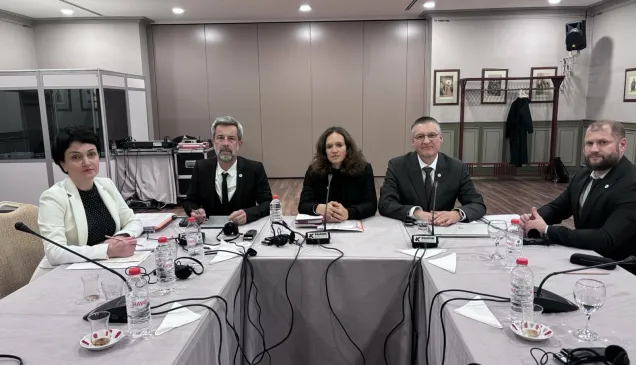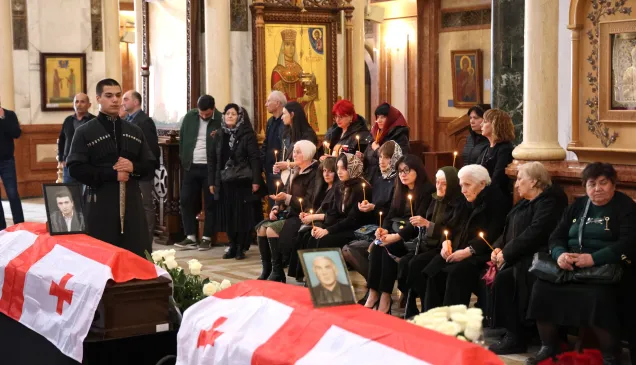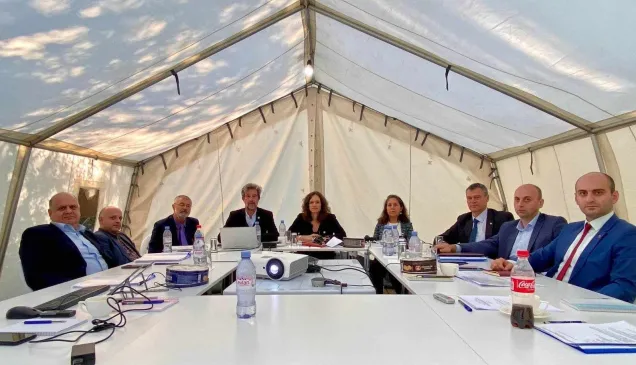Missing persons: ICRC organizes two-day study tour to Cyprus
Nicosie (ICRC) – The International Committee of the Red Cross (ICRC) recently organized a two-day study tour to Cyprus for the Georgian and Abkhaz participants of the coordination mechanism it chairs in relation to people unaccounted for in connection with the 1992-93 armed conflict in Abkhazia and its aftermath.
The visit was carried out in association with the Committee on Missing Persons in Cyprus (CMP). It offered the two well-established forums a platform to share their respective experiences about the humanitarian work being carried out in the context of those missing in relation to past conflicts. The visit also enabled the participants to build on the lessons learnt from the CMP's work since its establishments in the early 1980s.
"The Cyprus example is comprehensive and showcases the extensive process of providing answers to the families of missing persons. This visit exposed the Georgian and Abkhaz participants, both at policy and forensic level, to another context where the options chosen to address the problem of missing can be inspiring. It will help take the coordination mechanism's extensive work even further ahead," said Séverine Chappaz, the ICRC coordinator of operations for Europe and Central Asia.
On the sidelines of the study tour, the Georgian and Abkhaz participants also held their biannual working meeting on 18 December under the aegis of the ICRC. The meeting was held to review the results of the mechanism's activities during the year and discuss the way forward.
It's been a year since the implementation of the 2017-2021 work plan for the acceleration of the process of search for missing persons and the development of local capacities. And, the results have been encouraging, particularly the recovery and dignified management of the remains of 90 people. Besides this, 26 families finally got closure when they received the remains of their missing relatives after a 25-year-long wait, giving them an opportunity to give their loved ones a proper burial. During the year, over 50 families of missing persons also received psycho-social support, thus helping them cope with the anxiety of not knowing.
Talking about the way forward in 2018, Ms Chappaz said, "A tentative schedule has been made for excavations and exhumations, as well as for the implementation of the required preparatory measures. The participants have shown a firm commitment to take this coordination mechanism even further, and it was emphasized that intensive efforts need to be made to get reliable information on new burial sites."
Since the creation of the coordination mechanism in 2010, close to 341 sets of human remains have been recovered. Of these, 107 were identified and handed over to the families for a dignified burial. The process to identify the remaining is ongoing.
For further information:
Maia Kardava, ICRC Tbilisi, + 995 5 99 55 88 18
Boris Kazanba, ICRC Sukhumi, +79409215373



